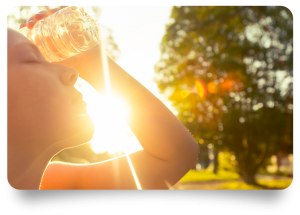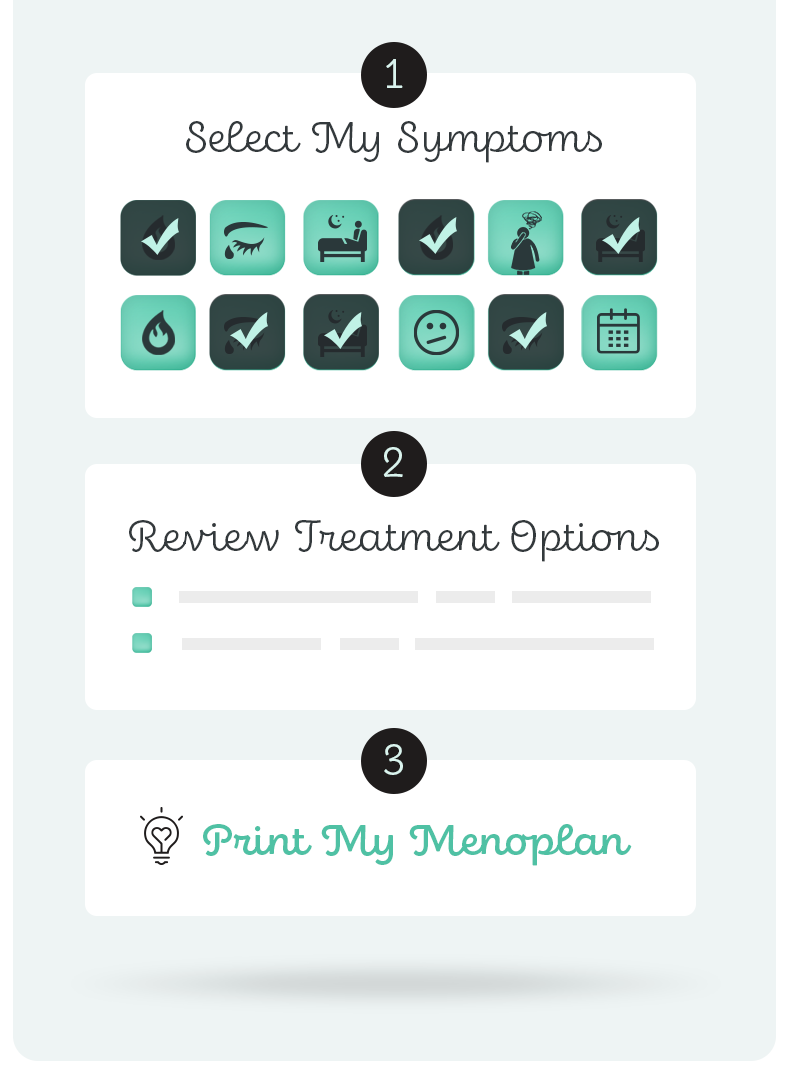Treatments
WHAT IS IT?
Many potential triggers for hots flashes and night sweats have been suggested. These include:
- hot weather
- alcohol
- red wine
- spicy foods
- hot foods or liquids
- caffeine
- anxiety
- stress
No scientific studies have looked at these potential triggers and whether avoiding them helps.
Exercise may trigger hot flashes, but does not increase the number of hot flashes women experience during the day.
OUR BOTTOM LINE, DOES IT HELP?
DON’T KNOW. We really don’t know how well avoiding triggers works, because no one has studied this approach. There is no evidence one way or another but if you feel like experimenting, see what works for you.

HOT FLASHES AND NIGHT SWEATS
POTENTIAL RISKS & SIDE EFFECTS
None
QUALITY OF LIFE EXPECTATIONS
None
IF I WANT TO TRY THIS TREATMENT, WHAT ARE MY NEXT STEPS?
- Try tracking your hot flashes or interrupted sleep, and note potential triggers. You can download one of our diary templates (hot flashes, National Sleep Foundation Sleep Diary), track on your phone, or make our own.
- If you find something is regularly triggering your symptoms, do your best to avoid it and see if that helps.
Freeman, E.W. and Sammel, M.D.2016. Anxiety as a risk factor for menopausal hot flashes: Evidence from the Penn Ovarian Aging Cohort. Menopause, 23(9), 942-949. doi:10.1097/GME.0000000000000662.
Guthrie JR, Dennerstein L, Hopper JL, Burger HG. Hot flushes, menstrual status, and hormone levels in a population-based sample of midlife women. Obstet Gynecol 1996;88:437-442.
Authors: Dr. Katherine Newton & Dr. Leslie Snyder. Last reviewed: April, 2021.



